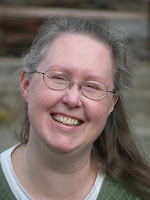by Jeff Reynolds
Today, I have the honor of interviewing one of my critique partners, Ellen Parker. I look forward to reading her submission each week. One of those works has just been published: Starr Tree Farm.
Jeff Reynolds: Welcome to Hoosier Ink, Ellen. Since this blog focuses on Christian writing, could you share how both your faith and writing journeys began?
Ellen Parker: Thank you for the invitation to share some thoughts with your readers. I’ve been a Christian my entire life, even when church attendance and activity varied through the years. My writing simmered in the background until computers made it so much easier to correct spelling. Then, as my children moved out on their own, I devoted more and more time to creating a world filled with characters moving toward a happy ending.
JR: Your debut publication has just hit the stands. Could you tell us about it?
EP: Starr Tree Farm is the story of a young widow. It begins one year after her husband is murdered, and the stress of his unsolved case and an invitation from relatives take her away from St. Louis to the small Wisconsin village of Crystal Springs. Also back in the community after years away is Brad Asher. Laura remembers him as the pesky neighbor boy from childhood visits but he’s grown, matured, and changed in many ways. As Laura and Brad renew their acquaintance, a bit of the dark side of humanity pokes above the surface in the peaceful village – aimed at Laura.
JR: You're probably familiar with the advice that good writers should be good readers. Who do you enjoy reading the most? Is there any authors/books that have influenced you which would surprise those who enjoy your writing?
EP: I’ve tried to keep my reading on a fairly wide plateau and not limit myself to only one genre. As a result it would be hard to credit only a few writers with influence. Two that come to mind are Joanna Bourne with her fine romance novels set against the French Revolution (TheSpymaster’s Lady, My Lord and Spymaster, The Forbidden Rose, and The Black Hawk), and David Guterson and his excellent use of language in Snow Falling on Cedars.
JR: I've read that suspense writing is best done without an outline (Stephen King has that philosphy), but my favorite suspense writers (Randy Singer, Amy Wallace, Heidi Glick) have a different perspective. Are you an outliner, or a blank pager?
EP: I work from an outline but keep it flexible. The identity of the villain has been known to change from one draft to the next.
JR: You are a former ACFW member. May I ask what led you to join the American Christian Fiction Writers, the benefits/deficits of being a member, and why you decided it was time to leave?
EP: In 2009 I attended the Green Lake Christian Writers Conference and our instructor for the fiction workshop was Patti Lacy. I first learned of the ACFW from her. I enjoyed my membership and view it as another piece in my writer’s education. I left because the characters I write may be Christians, but their faith arc is not a major portion of the story I want to tell. I also feel I can reach a larger audience via ABA.
JR: I don't know if you want this to be public information, but we happen to be critique partners. (Hope the readers don't hold that against you!) Besides our group, are you a member of a non-Christian critique group as well? How has being in your critique group(s) assisted in your writing?
EP: My local Romance Writers of American (RWA) chapter maintains a critique group and I participate as much as other activities allow. Critique groups have helped make my writing better – from basics like POV and stripping repetitive words to strengthening the motivation of my characters.
JR: From the perspective of a Christian writing outside of the CBA market, what do you see as the future of Christian fiction? In other words, if a young Christian writer asked for your advice, what would you suggest?
EP: I think Christian fiction has a strong and important place in the publishing world. I’d suggest that the writers and publishers try to keep their focus on the largest group possible. For example: If your target audience is a Christian woman of middle age, then produce stories that she would be apt to share with her mother, her daughter, or her neighbor even if their faith is not as public.
JR: What's next on the horizon, both writing-wise and other-wise?
EP: My work-in-progress is another romantic suspense set in Crystal Springs. I intend to remain active in my local RWA chapter. I enjoy travelling, and hope to soon complete the goal of having visited all fifty states.
JR: Thank you for your time. If someone wants to keep up with your writing, where should they go?
EP: Readers can get glimpses into my life and contact me on my blog: www.ellenparkerwrites.wordpress.com or on Facebook: www.facebook.com/ellenparkerwrites.







.jpg)








